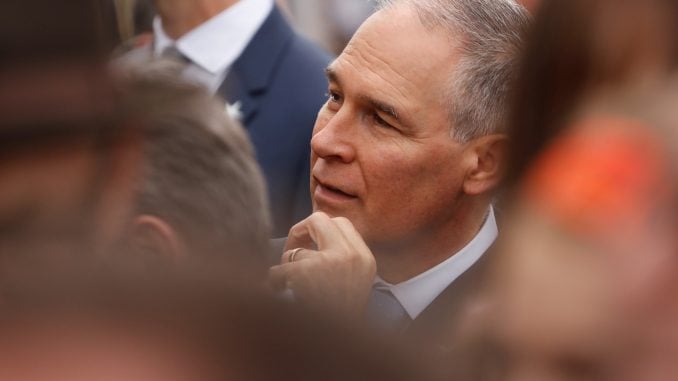
WASHINGTON, D.C. – The Environmental Protection Agency is close to announcing a new policy that would stop it from relying on scientific research underpinned by confidential data in its rulemaking, according to two sources familiar with the matter.
The measure will be billed by the agency as a way to boost transparency for the benefit of the industries it regulates, according to the sources who asked not to be named. But scientists and former EPA officials worry the move will hamstring the agency’s ability to protect public health by putting key medical and industry data off limits.
EPA Administrator Scott Pruitt, who has been pursuing President Donald Trump’s mission to ease the regulatory burden on business, is expected to unveil the new policy as early as Tuesday afternoon, the sources said.
EPA officials did not respond to requests for comment.
The EPA has for decades relied on scientific research that is rooted in confidential medical and industry data as a basis for its air, water and chemicals rules. While it publishes enormous amounts of research and data to the public, the confidential material is held back.
Business interests have argued the practice is tantamount to writing laws behind closed doors and unfairly prevents them from vetting the research underpinning the EPA’s often costly regulatory requirements. They argue that if the data can’t be published, then the rules should not be adopted.
But ex-EPA officials say the practice is vital.
“Other government agencies also use studies like these to develop policy and regulations, and to buttress and defend rules against legal challenges. They are, in fact, essential to making sound public policy,” former EPA Administrator Gina McCarthy and former Assistant Administrator for Air and Water Janet McCabe wrote in an op-ed in the New York Times last month.
The new policy would be based on proposed legislation spearheaded by House Science Chairman Lamar Smith, a Republican from Texas who denies mainstream climate change science. Emails obtained through a public records request last week showed Smith or his staff met with Pruitt’s staff in recent months to craft the policy. Those emails also showed that Pruitt’s staff grappled with the possibility the policy would complicate things for the chemicals industry, which submits reams of confidential data to EPA regulatory programs.
An official for Smith’s office did not provide comment.



